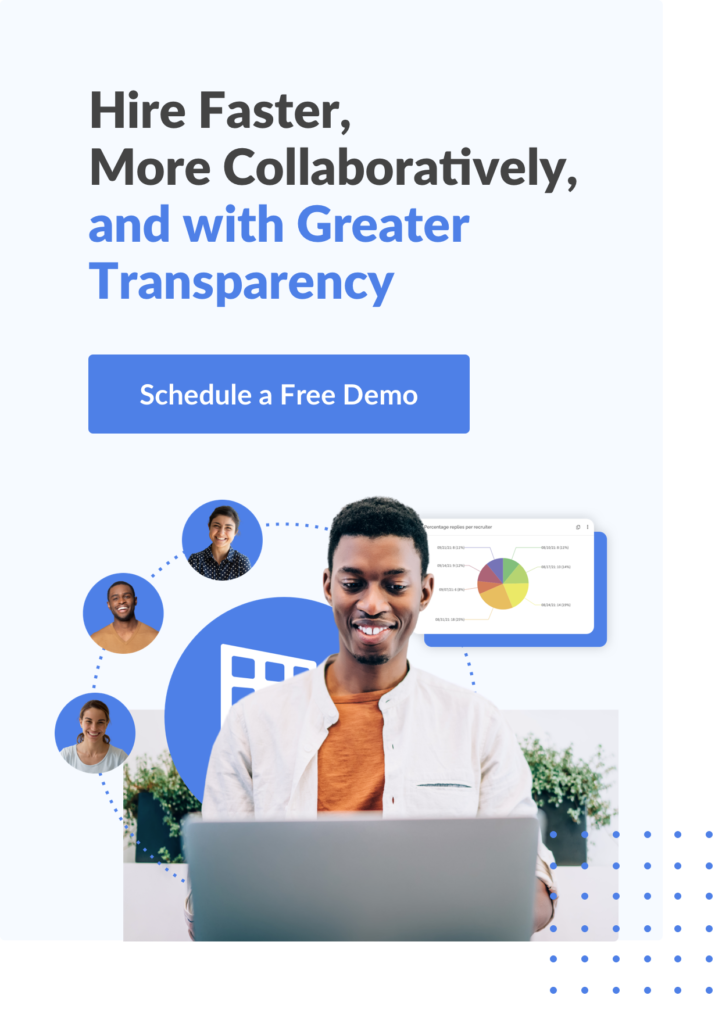Candidate feedback on the interview process is vital to improving your hiring efforts. Reach out to the candidates that declined your offer, too. You may be surprised by what you learn.
It takes a lot of work to get a candidate to offer stage. When they decline that’s a lot of time, effort, and money down the drain.
Consider all you did to find that one person:
- sourcing
- creating the job ad
- advertising the job
- all the resumes screened
- phone interviews
- in-person interviews
- assessments
- practical exercises
- interview group pre-briefs and de-briefs
Then, maybe you flew in the candidate, had a team lunch, and set up manager interviews. It all adds up.
Ideally, you’d only extend an offer to candidates when you know they will accept. But, since candidates are humans too, they can make life unpredictable.
The Power of Feedback
Everyone that comes through your hiring process should have a great experience. Word of mouth is powerful and candidates talk.
Good candidates know other talented people that haven’t applied yet. If they don’t hear good things about you, they are unlikely to apply.
How do you continuously improve so future candidates are more likely to say yes to your offer? Feedback. You need feedback to improve your process and ensure you are attracting/hiring the right people.
There are a few different options to get feedback from candidates:
- Glassdoor
- Applicant Tracking Systems (ATS) candidate polling functionality
- chatting with new hires once they’ve joined
- debriefing the candidate at the time they turn you down.
These methods all have shortcomings.
Why not try contacting the ones that got away? Reaching out to people that turned you down can give you rich, actionable feedback. Plus, it avoids many of the flaws of the other methods. Here are some more reasons to do it:
- It’s not anonymous – You have a ton of context in which to set the feedback. You can spot patterns in the experiences of women and minorities coming through your pipeline.
- Motivation – People will be more likely to share real feedback when they know your intent is to improve your hiring process and not a Machiavellian attempt to get them to change their mind about your job offer or they’re not worrying about burning bridges with you.
- Quality – These are the people who were closest to becoming your colleagues, by definition these are the people whose judgment you trust the most. This group experienced the entirety of your hiring process, vs feedback on places like Glassdoor, where they may have only had a first-round screening.
So how do you do it?
- Batch ’em up – It’s a good idea to batch up this outreach, contacting people 3-4 months after they turned you down. Grouping like this allows for trends to surface, and better perspectives arising from having had time to reflect.
- Share context – Email the candidates initially, explain that you’d like to chat with them regarding their experiences. Share that since you offered them a role, you trust their opinion and value their feedback. Don’t forget to share your goal – that you’d like to improve your hiring process and lose fewer great candidates like them. A little flattery goes a long way!
- Entice! – By all means offer an incentive, after all this group of people really don’t owe you anything (a Starbucks card, Amazon voucher, donation to charity in their name). But people often respond well to a sincere request earnestly asked without needing inducements.
- Prepare! – Look at the offer declines
- By diverse candidates, are women and minorities disproportionately represented?
- By role, did PMs turn you down more than other skill sets?
- By location, did lots more people in New York turn down offers than elsewhere?
- Prepare some more! – Before you pick up the phone make sure you review all the notes. You need background. Know the role they were applying for, whether they applied to you or you sourced them, all of the interview feedback, and the reason you think they turned you down.
Questions to ask/Patterns to look out for
- Context – What was the candidate looking for when they started looking at new roles?
- Branding and messaging – What was their understanding of the role and your company at the outset of the hiring process? Why did they apply or agree to interview? Did that change during the hiring process? Was there anything that confused or surprised them during the process?
- Experience of hiring process – Did they have a positive experience? Did they feel that your company had a good understanding of their skill set by the end? Which parts of the process particularly gave them that impression? If not, why not? Was there a particular moment in the hiring process where they became more or less excited about the role? Were they interviewing with other companies at the same time? If so what did those other companies do well?
- Diversity – Were diverse candidates comfortable during the process? Is there any trend or commonality in the experiences of diverse candidates?
- Competitiveness – Did they have competing offers? How did the opportunity itself compare to their other offers? How did your offer stack up? How was the timeliness of the process? What could have been offered/ done differently that would have resulted in them accepting your role?
- Their current role – Why did they decide to go with that role/company? What clinched it for them?
When you’ve synthesized all the feedback and thanked your participants you’ll know what to fix first. This could be re-writing job ads to more accurately capture the role, rolling out interviewer training, making the compensation package more desirable, a combination of these things, or something else entirely.
Seeking out candidate feedback on the interview process can have many benefits. Aside from the obvious benefit of gleaning valuable intel and making improvements to your hiring process, there’s also a chance that the other opportunity the candidate took isn’t working out as they’d hoped. Maybe, just maybe, they’d been looking for a way to approach your company again.


